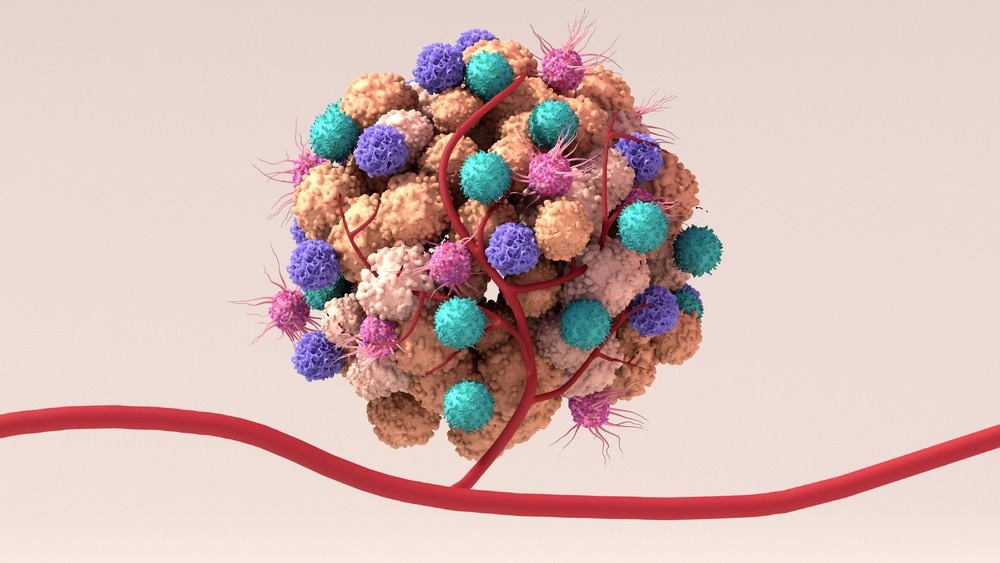Knowledge of the human proteome is growing, although much is still unknown about how it varies between individuals. Understanding these differences will likely lead to the development of novel therapeutics for a wide range of diseases due to the role of proteins in maintaining biological functions.

Image Credit: ArtemisDiana/Shutterstock.com
What is the human proteome?
The human genome was first fully mapped back in 2003. This breakthrough has facilitated many significant advances in the field of medicine in the years that have followed. Understanding how genes work is important as they control the basic functions of the cell. This understanding has led to new genetic therapies for numerous diseases.
Many genes code for proteins; more than 20,000 protein-coding genes have been identified. Proteins are vital to biological function, and they control pathways responsible for maintaining healthy processes in the body. Therefore, mutations or adjustments to protein levels are often at the root of disease. An emerging field of science is dedicated to exploring the relationship between the proteome and human health. It offers great potential to develop novel therapeutics for diseases. However, our knowledge of the human proteome has lagged behind that of the human genome.
Many research projects are currently underway to establish the relationship between genes and proteins and proteins and disease, expanding our knowledge of the proteome. We now understand that the human proteome varies greatly between individuals, and within this variability may lie important clues to the role proteins play in disease.
Variability of the human proteome
The complete variability of the human proteome is currently unknown. While much research has helped to advance our knowledge, the complete picture of the proteome and how it differs between individuals remains elusive.
To date, research has revealed that the human proteome is comprised of between 10,000 and several billion different species of protein. According to the Plasma Proteome Database, more than 10.5 thousand blood plasma proteins have been detected, and less than 10% have been quantitatively investigated. Recent estimations published in 2022 concluded that just under 10% of the proteins held within our cells are still unknown.
Within the human population, variability with a standard deviation for different proteins within the proteome ranges from 15% to 30% of the mean. However, detailed information regarding how specific proteins or patterns of proteins range within the population is still largely unknown.
What is known is that the proteome is not constant. Not only does it differ between populations and individuals, but it also differs between cell types. The proteome is impacted by many factors, which differ within the population, thus causing variability in the proteome. However, more research is needed into the relationship between these factors and their effect on the proteome. Such factors include a person's inherited genetics, state of health, age, and diet.
We are currently in the early stages of identifying protein biomarkers associated with these factors. The data available to date indicate that these factors affect the proteome, the specific proteins impacted and how they are impacted are being uncovered.

Image Credit: Design_Cells/Shutterstock.com
How studying the proteome is important for treating disease
Research has the potential to identify proteins as molecular biomarkers of certain diseases. If identified, there is potential to screen those at high risk of developing particular diseases, to offer personalized therapies with higher efficacy rates and lower risks of side effects, to develop genetic therapies, and much more.
The face of medicine could change greatly as the field of proteomics grows. In particular, the proteomics approach has become popular in oncology research. Scientists are working on establishing proteomics-based technologies that enable the identification of protein biomarkers that can be used to assess tumor prognosis, classification, prediction, and identify potential responders for specific therapies. One of the most promising potential applications of proteomics in cancer treatment is patient-tailored therapy, also known as personalized or precision medicine. This kind of treatment is based on the evaluation of genetics or the proteome to understand which therapies a person will likely respond to. This helps doctors administer life-changing therapies at earlier stages, leading to better treatment outcomes.
Studies have also shown that proteomic screening could also be used to identify those at risk of Parkinson's and Alzheimer's disease. This would allow for therapies to be initiated before the onset of the disease, which research has suggested may lead to better patient outcomes.
In addition, studies have shown that proteomics will likely be important for developing diagnostic or prognostic markers for infectious diseases, e.g., tuberculosis and malaria, and immune rejection after transplantation.
Recent research has even highlighted the potential use of proteomics in screening for allergies, including food allergies.
Sources:
- Hoffmann-Sommergruber, K., 2016. Proteomics and its impact on food allergy diagnosis. EuPA Open Proteomics, 12, pp.10-12. https://www.ncbi.nlm.nih.gov/pmc/articles/PMC5988494/
- Jiang, Y., Zhou, X., Ip, F., Chan, P., Chen, Y., Lai, N., Cheung, K., Lo, R., Tong, E., Wong, B., Chan, A., Mok, V., Kwok, T., Mok, K., Hardy, J., Zetterberg, H., Fu, A. and Ip, N., 2021. Large‐scale plasma proteomic profiling identifies a high‐performance biomarker panel for Alzheimer's disease screening and staging. Alzheimer's & Dementia, 18(1), pp.88-102. https://pubmed.ncbi.nlm.nih.gov/34032364/
- Kushner, I., Clair, G., Purvine, S., Lee, J., Adkins, J. and Payne, S., 2018. Individual Variability of Protein Expression in Human Tissues. Journal of Proteome Research, 17(11), pp.3914-3922. https://pubs.acs.org/doi/10.1021/acs.jproteome.8b00580
- O'Bryant, S., Edwards, M., Zhang, F., Johnson, L., Hall, J., Kuras, Y. and Scherzer, C., 2019. Potential two‐step proteomic signature for Parkinson's disease: Pilot analysis in the Harvard Biomarkers Study. Alzheimer's & Dementia: Diagnosis, Assessment & Disease Monitoring, 11(1), pp.374-382. https://www.ncbi.nlm.nih.gov/pmc/articles/PMC6502745/
- Ponomarenko, E., Poverennaya, E., Ilgisonis, E., Pyatnitskiy, M., Kopylov, A., Zgoda, V., Lisitsa, A. and Archakov, A., 2016. The Size of the Human Proteome: The Width and Depth. International Journal of Analytical Chemistry, 2016, pp.1-6. https://www.ncbi.nlm.nih.gov/pmc/articles/PMC4889822/
- Sigal, A., Milo, R., Cohen, A., Geva-Zatorsky, N., Klein, Y., Liron, Y., Rosenfeld, N., Danon, T., Perzov, N. and Alon, U., 2006. Variability and memory of protein levels in human cells. Nature, 444(7119), pp.643-646. https://www.nature.com/articles/nature05316
Further Reading
Last Updated: Nov 16, 2022